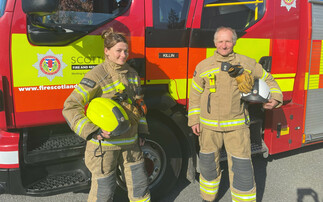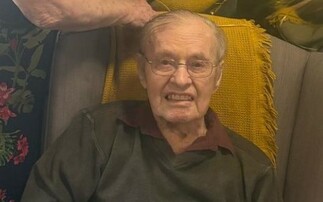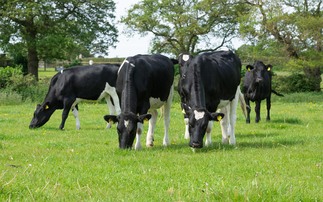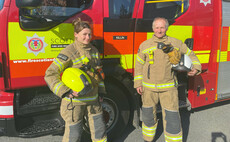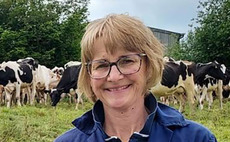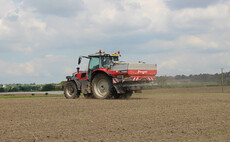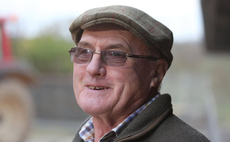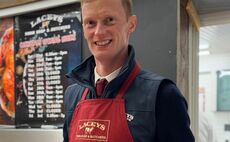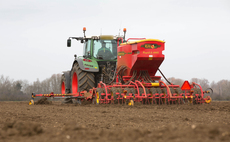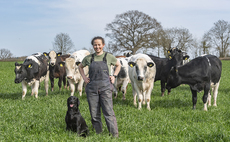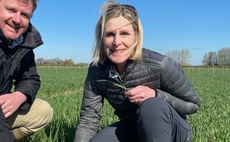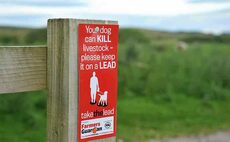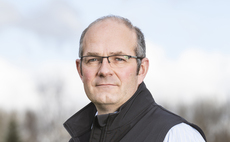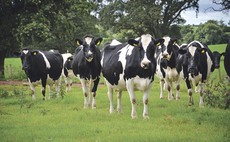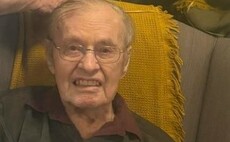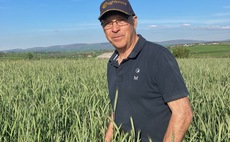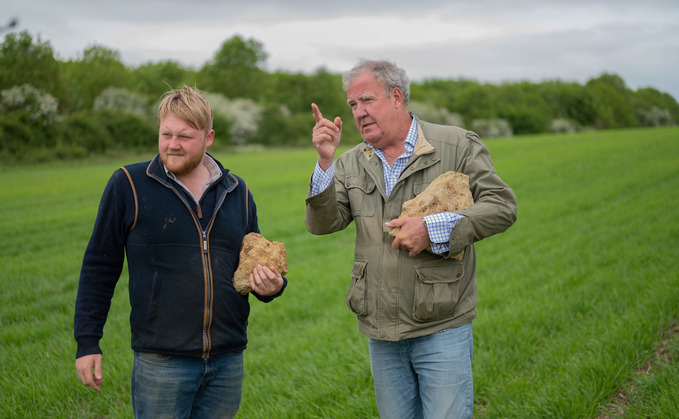
Q: Tell us about the bet you had with Kaleb about who could make the most money?
A: That is the backbone of the whole series. We have a 1,000-acre farm but since I bought it in 2008, we have only ever farmed 500 acres of it and the other 500 acres is wildflower meadows, streams, woods, and rough ground. There are no crops growing, no animals, just countryside because the state of farming is so parlous at the moment. I bet Kaleb that I could earn more money from doing little projects on unfarmed land than he could from farming 500 acres. So while he was stuck with the traditional wheat, barley, and arable farming, I started harvesting blackberries, planting mustard, and using tiny little pockets of unfarmed land around the place.
We harvested the nettles which normally are just a nuisance and tried to make them into soup. I got pigs into the woods - woods are normally empty of cash, no money comes from them, so I just did little bits and bobs like that to see if I could make more than he did. It is a way of trying to earn money from every little postage stamp of land without spoiling the countryside, so it is not tearing up the land; picking blackberries and nettles does not do anybody any harm.
This year, the spending was truly astronomical because prices were so high. You spend a huge amount of money then you hope that the weather is right and that the prices are right when you sell. We grew mushrooms at the top of the farm where there used to be an American bomber base; the underground air raid shelter is still there so I thought: We can grow mushrooms in there.

It was a case of, can we make five pounds here and a bit of money there? I will not spoil what happens but it was an interesting experiment. In the olden days when fertiliser, seed and sprays were not so expensive, farming was like gambling when the minimum bet was £2. So, you could go to a casino or a horse race and put £2 on and it is fun because if you win £4 or £6, great, and if you lose, you have only lost £2. That is fun. But if the minimum bet was £100,000, you would not bet; you just would not risk it. Last year before the harvest we had to lay out £108,000 on diesel, fertiliser sprays and the seed itself. That is a huge bet. That is fine if the weather is okay because you are going to make that money back. But you have a hell of a lot of sleepless nights when you know that one rainstorm could wreck the lot.
I have noticed that farmers are quite sanguine. They say: Well, you cannot control the weather. They sort of roll with it, but I am too Yorkshire for that. I lie in bed after spending £100,000 hoping the weather is good and, guess what? The weather was absolutely terrible, all year, every single month.
READ NOW: Clarkson's Farm series three trailer - what can you expect?
Q: How are you and Kaleb this series? Still arguing?
A: I struggle to argue with him about farming because he just knows more than I do (he gets very frustrated with me). But when we do things like trying to repair the dam, that is construction, and neither of us really know what we are doing there, so that was one of our big arguments. Then he was made to wear health and safety equipment, which nearly killed him because he stepped off the machine still attached to it and hit his head.

Q: In this series, you explore a different approach to farming. Tell us about that.
A: We try something new out. At the moment we plant a field with wheat or barley or whatever it might be, and Kaleb goes out with the insecticide, pesticide and fertiliser in the tanks of the sprayer and then just sprays the fields, which is standard practice. We speak to a team who says you need to plant more than one crop in a field at a time. If you go for a walk in the woods or anywhere, you would never find just one plant growing. There is always loads of them in any given area, and they always benefit from each other's presence.
READ NOW: #FarmingCAN: Kaleb Cooper - "The day I stop farming, god knows what I will be doing"
So, we need to grow wheat, clover, and beans in one field and you do not just spray it randomly, you test the wheat and the sample comes back saying it needs a bit of this or a bit of that and then you give it specifically what it needs, when it needs it. So, we tried this idea in one field. On average I think we probably usually use 200 kilograms of chemical nitrogen in a field. On the practice field, we only used 11kg of nitrogen, so I quite like the idea of it.
It is responsible farming but do bear this in mind: I can do it because I have got other income streams. If something goes wrong, it is not the end of the world.
Q: How were the pigs challenging?
A: The sows were giving birth, but it was always in the middle of the night, and it was bitterly cold. When you have got a sow that is in trouble, you have to help out, and the fact is that Lisa's hands are smaller than mine so she was the first to say: "It has to be me, it would be ridiculous to put your big old boxing gloves up the sow."
She went literally shoulder deep. She did say afterwards at least it was it was warm up there.
Q: Is it difficult to edit the show in terms of what you want to portray?
A: No. In the past, farming on television has been portrayed as fresh straw, fluffy lambs, agreeable calves - a bit like Babe. I had it in my head before we ever started the farm that farming was not like that; that it was much dirtier and harder, and I always wanted to show it like it actually is.
Every single TV show or movie we watched as a child was sad: Lassie, Ring of Bright Water where the otter gets a shovel through his head, Old Yeller, he died. Born Free was an absolute tear-jerker. There was never a children's film in the 1960s and 1970s where it had a happy ending, and I do not know what happened, but movie producers decided films needed happy endings, and that is what we have got used to.
Well, farming does not have many happy endings, as we have discovered. We want to do real farming and show everybody what real farming is. So whatever happens on the farm, we show it on television.












